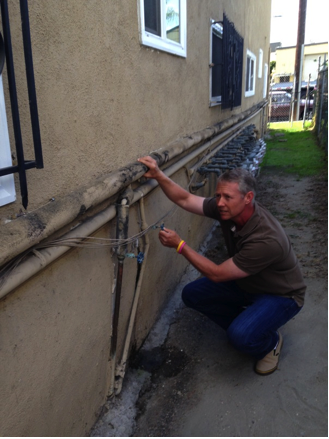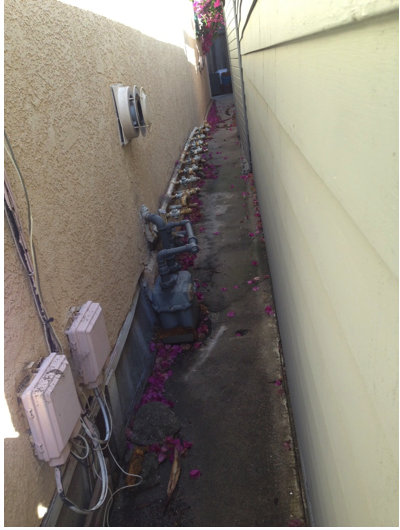There is a rush when you are told that you have a property under contract to purchase. I got my first taste in 1991 and have enjoyed that high ever since.
Much of my work is done upfront during my underwriting when my team and I review the trailing 24 – 36 months of financials. I also like to do a preliminary walk of the property even if it is done quietly by following a resident into the building. As nearly every seller’s number one goal is to maximize price, I try to offer the amount at which I am prepared to ultimately purchase the property. That doesn’t include the negotiations as it is rare to land on the final purchase price on the first offer (real estate people love haggling).
Once a property has been put under contract, I bring a physical inspection team with me and every unit is inpsected. While many times “a sampling” is offered, I have spotted so many interesting issues over time that I insist on a complete viewing. If I note any structural issues, I engage an engineer. It should be noted that during the physical inspection, opening dialogue with the residents and the staff can uncover previously undisclosed problems. I’ve had sink holes (soil issues), shifting buildings, flooding, roof leaks, mold and crime issues raised by people on the site visit which came as a complete surprise to me and ultimately led to more extensive investigations.
Whether you are a beginner or a seasoned veteran, I can’t emphasize enough the importance of taking the time and making the effort to be a part of the inspection. I’ve avoided making purchases which later resulted in big surprises. I’m not mistake free as I have been stung by overestimating the condition of the roofing and plumbing. Nothing like an unbudgeted re-plumbing or re-roofing of a property to knock the return on investment for the year…

Another important aspect of the due diligence is a lease audit. It is vital to make sure the people occupying the property have been properly screened and can actually pay the rent. Sometimes a desperate or unethical seller will move people in so that the property is full and appears to be running well. During the physical visit to the apartments, the team counts toothbrushes and makes a note of how many there are. If there is only one and the qualification for the unit included the income of three people, red flags arise.
I also make a point to compare the bank deposits with the income listed in the profit and losses. Just because warm bodies and furniture are in an apartment doesn’t mean that money is hitting the bank. A friend of mine who owns several thousand units made a purchase and later found out that many of the residents were not qualified, couldn’t pay the rent and had to be evicted. An extremely painful experience for a seasoned owner.
Go with your gut and ask questions. I suggest putting on a detective’s hat with the mindset that issues are being hidden from you. There are almost always surprises and sometimes it will include something which the seller knew nothing about.
On the positive side, I have found hardwood floors in pristine shape which were covered by carpet. In a recent inspection, I was told that the property was master-metered for gas. When I walked the property, I noted that the property used to have individual gas meters and then my plumbers verified that the building was still individually plumbed. It may be a simple fix to add immediate value and cash flow to the property.

As your job as a property owner begins when escrow closes, it is vital to gain as much knowledge as possible about your investment BEFORE you own it. Since it is highly unlikely that you closely observed the being built, a complete check-up is key so that you know the current health.
Some of the most valuable money I’ve ever spent was paid to thorough inspectors and a few of my best purchases were the ones that I didn’t make.


Great I like the idea, First you have to check your state’s Real estate laws, Where I’m at you dont need a linesce to Flip a house. That’s the name of it (flipping houses) You can do it your self if you know what your doing. You will need to have a Licensed for the Construction depending on your state. Where I live The Electric, Plumbing and heating and air people have to be linesced and it has to go through inspection, before you can move in your need wants called a C.O. Certificate of Occupancy. The best place is to google your State for example NJ+real estate lawsReferences : the Post above me Says about how bad it is too do this now. this is actually the best time to buy and the worst time to sell. So Buy one now and work on it, There is not better place to put your money then in land. SO if you see a house that is 100,000 offer them 50-75,000 its called low balling them and let them counter your offer and if you dont agree with is you can hit them a little lower then what they come back at. This is the best part of the whole deal. The Negotation Was this answer helpful?